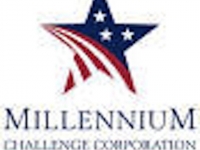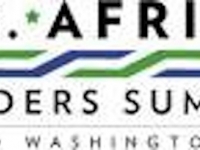Politics
Saga US Africa Leaders Summit : The Day before the summit
Science promotes broadband growth

Global Science Collaboration Logo (Source: www.globalsciencecollaboration.com)
USPA NEWS -
During August 4-6, 2014, President Barack Obama convened the U.S.-Africa Leaders Summit, the largest gathering of African heads of state and governments ever assembled by a U.S. President Fifty-one leaders focused on sustainable development, trade, collaboration, investment, and America's commitment
During August 4-6, 2014, President Barack Obama convened the U.S.-Africa Leaders Summit, the largest gathering of African heads of state and governments ever assembled by a U.S. President. Fifty-one leaders focused on sustainable development, trade, collaboration, investment, and America's commitment to Africa's security, its democratic development, and its people. The summit took place during the same time as the 13th Annual African Growth Opportunity Act (AGOA) Forum.
Source cfr.org
The MCC, is a development institution created in 2004, in the US by both the State Department and USAID, aiming to facilitate opportunities for businesses between the US and Africa. The Millennium Challenge Corporation (MCC) is based on a programme including very selective criteria, including transparency and governance, in order to enable to access for the fundings eligibility. The other underlined consequence by crediting these institutional projects in situ Africa, is the implementation of some reforms in terms of free market indicators and independence from US policy goals. Meanwhile, in the private sector, is also operating actively alongside the government since 1971 helped by some financial tools.
For instance in 2011 the major US programme “Feed the future“ has reached successfully 12 out of 19 African countries targets, in order to promote the capacity of smallholder farmers with the ambition to partner with private investors and /or donors.
The day before the official Summit US Africa, began the day by workshops under discretion by “Global Science collaboration“, at the National Press Club, Washington DC.
The day before of the Leader´s Summit is dedicated to high-flying scientists and experts in some different fields to address different themes orchestrated by Declan Kirrane, Irish lobbyist based in Brussels, with the European Union alongside Sofia Geck Washington. It is debated about a competitive advantage for Africa in collaboration the European Union for developing scientific projects, after many discussion towards a big dialogue between also the US and UE.
For instance there are 56 projects to be implemented by 2020 in Ghana, South Africa and Mauritius, amongst the African European Radio Astronomy Platform (The largest in the world).
Professor Paul J. Sullivan shares his experience in Dar Essalam, the lack of water treatment of plants kills 5000 people in Africa per day, which is the equivalent of the necessary energy for a stadium in the US per week. He addresses his message to the politicians of Washington (Without any cynicism) that “Distributing energy and make it sustainable, is far more important than to develop astronomy in Africa! Energy is connected with everything there: conflict, disease and poverty“.
Dr Julio Friedmann expert of Fossil Energy from US Department of Energy, explains that Africa has got tremendous resources with abundance of gaz, oil, coal, etc“¦
Barak Obama the US president initiated this partnership for Energy in the Global challenges program.
As far as education is concerned, Dr Michelle Fox speaks on behalf of Public/private sector perspectives on STEM Education in Africa. She explains that STEM program relies on the US workforce to implement these challenges. The IBIA program is based upon common employability, skills but she wonders about how to scale ? What´s the role of IT ? Can supply and demand be brought into balance? What is the role for employer recognised?
In the US, technologies are transferable with economic benefits in Africa. "There are limits of local economic constraints, people don´t take care of their precious stones, and diamonds are in Africa, that could be cut in Africa by its labour instead of sending the to Holland or India to be tailored. It sounds a cliché to say that, but it´s time now to do it".
The workshops chaired by Declan (lobbyist in Brussels) were animated and rich of exchange of both sides, and eventually lead to exchange business cards, supported by certain promises of partnership between Africans and Americans present.
Different topics are discussed on “Science Education and Public Outreach“, STEM Education to promote Transnational Human Good“ (Presented by Dr Mae Jemison, leading “100 year starship“ program. The Role of Small Businesses in Science and Innovation is also the opportunity to exchange, debate around the round table chaired by John Hale III form US Department of Energy, followed by a discussion around Ms Mindel De La Torre Chief of International Bureau Federal Communication Commission about "The Role of Information and Communication Technology in Economic Development."
M Irwin (Project Manager at NASA) has a fascinating power point presentation about the future of the SERVE project, "Connecting Space to Village". He explains that it is the origin of the name that sounded very significant “SERVE“ phonetically in Spanish "SERVER" which means "to serve" and was adopted well after the project design. The French name also recalls the matrix of the connection by net computer servers.
M Irwin announces that NASA and USAID have just signed a project by in country the SERVIR network providing environment for research; It means watching Earth in order to how do we take advantage from science and all this data to make decisions. For instance, the young self-made woman Suzan Malasso, invented a concept of frost mapping in Kenya, helping forecasts climate change in order to anticipate and prevent it as far as 72h ahead. She is now preparing a master with NASA, to implement her invention. A good example that NASA has the appreciation of the recognition that cooperation has to be done globally.
The last one, but not the least was the very sensible concern about food security, as arises the question of “ Science Collaboration and Partnerships to Improve Food Security in Africa“ developed by Dr William D. Province Director of Science and Technology External Affairs at DuPont. He details one of its share evidence in Africa, like improving farm productivity through collaboration by improving farmer´s milk stability for 12 to 15 hours daily without refrigeration.
Dr Mae concluded by last word by an optimistic end “In this room we have enough people to make the change the diversity of challenges in the US can be helped in Africa ?“
Liability for this article lies with the author, who also holds the copyright. Editorial content from USPA may be quoted on other websites as long as the quote comprises no more than 5% of the entire text, is marked as such and the source is named (via hyperlink).








